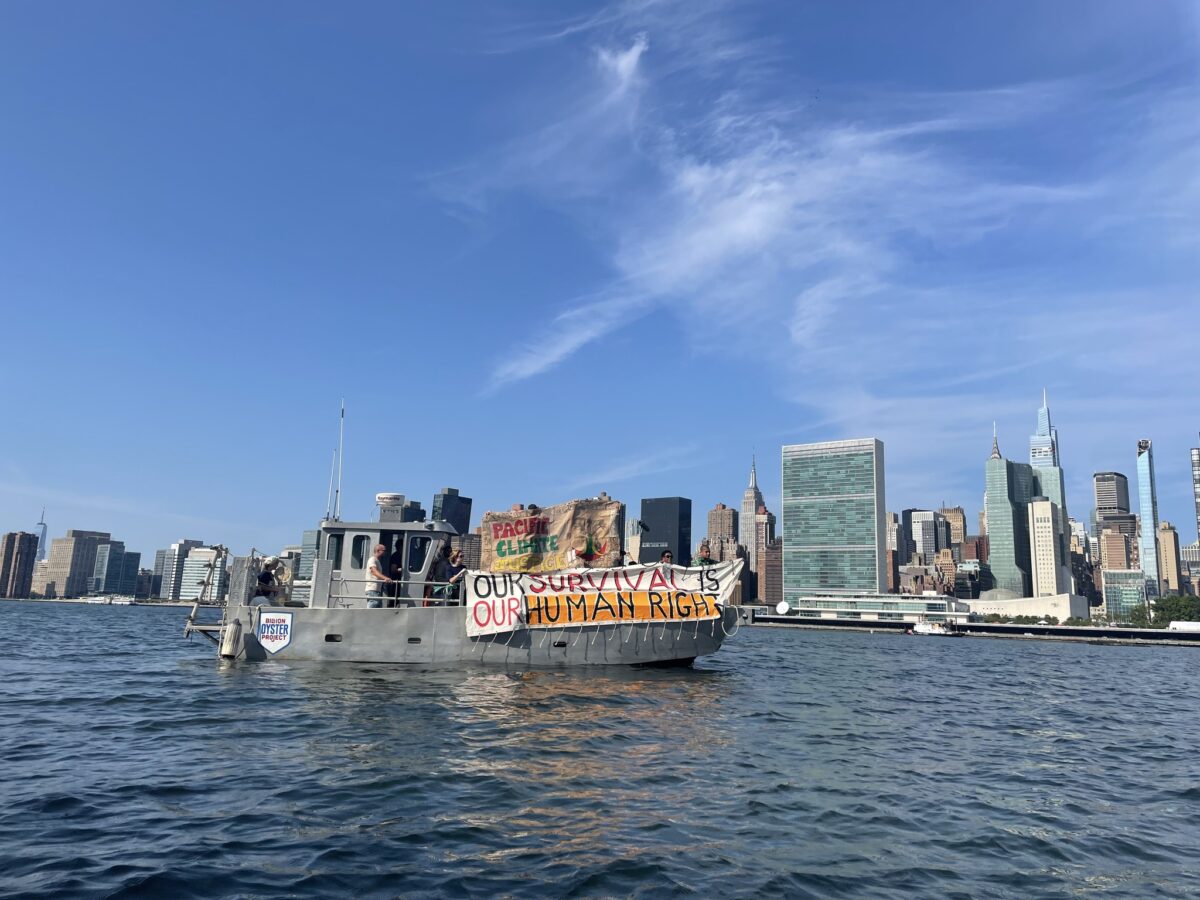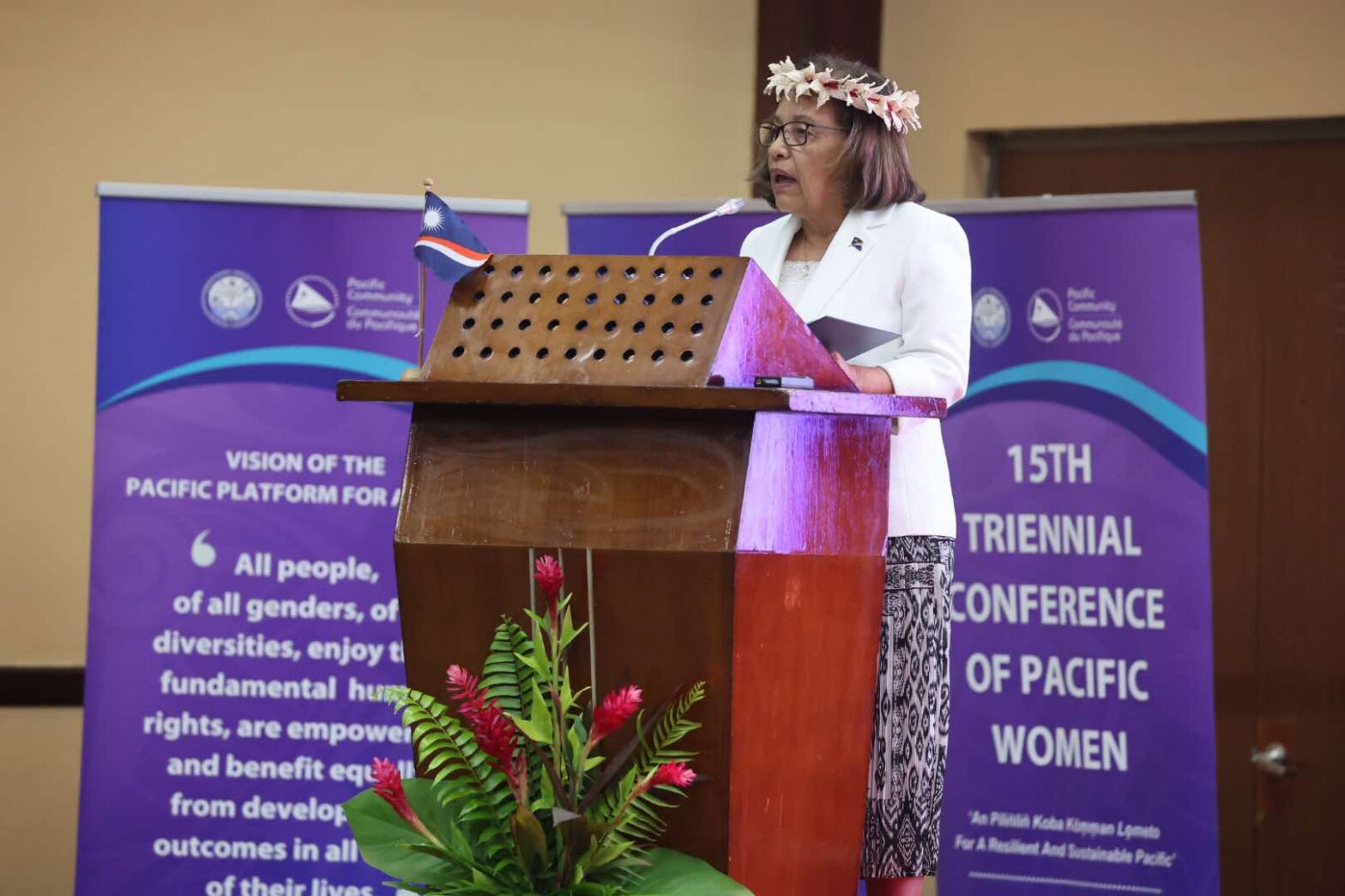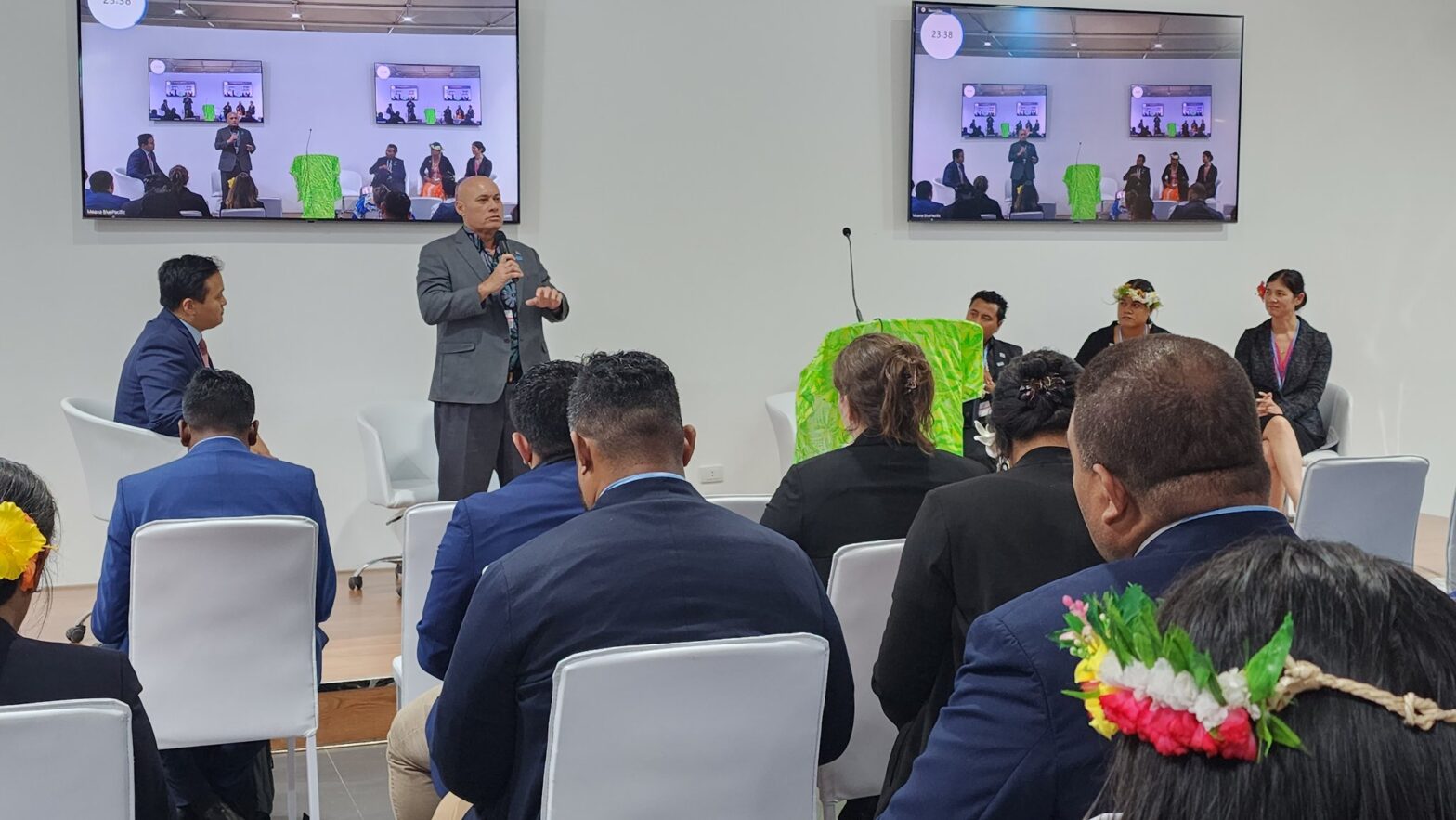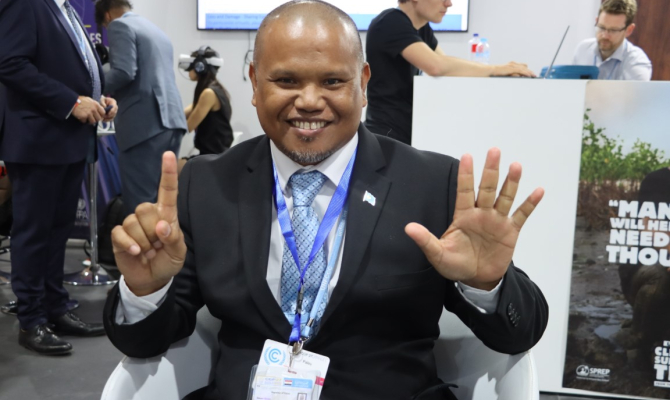The ICJAO campaign was born out of urgency as the future of the Pacific Islands has been in peril by the lack of global action, a PISFCC campaigner says
A youth group in the Pacific wants the International Court of Justice to address the issue of climate change and human rights in the region.
Formed in 2019 by 27 law students from eight Pacific Island countries at the University of the South Pacific, the Pacific Islands Students Fighting Climate Change (PISFCC) led International Court of Justice Advisory Opinion campaign (ICJAO campaign) seeks to clarify the obligations of states to protect the rights of current and future generations from the adverse effects of climate change, and advance the principles of climate justice, intergenerational equity, and human rights.
PISFCC campaigner in Fiji, Vishal Prasad said the future of the Pacific Islands has been in peril by the lack of global action and the ICJAO campaign was born out of this sense of urgency.
“A lot of Pacific Island countries are now declaring climate emergencies and it really is just to sound the alarm that what is happening is an emergency,” Prasad said.
“Advisory opinion is a response we’re taking. We’re looking at new options to bolster action.
“This campaign recalls the great journey specifically Pacific Islanders have made in the past and is now embarking once again, in search for greater climate justice at the world’s highest court.
“We are campaigning for an advisory opinion that seeks to bring together human rights, impacts of climate change on future and current generations as well.
“Climate change is a whole of society issue and as a result, there must be a whole of society response to it.
“One thing we can do is get our governments to support this campaign. There is a specific call to action for governments and if we can get all the leaders of the world to vote yes, that is a great way to move this campaign forward and get us closer to potentially addressing the climate crisis with progressing the advisory opinion campaign.”
Their dedication was recognised by the government of Vanuatu in September 2021, when Vanuatu announced its intention to seek an advisory opinion from the ICJ which then made it to the agenda of the 77th UN General Assembly meeting.
Arnold Kiel Loughman, Attorney General for the Republic of Vanuatu said their work as a whole government team, inspired and supported by civil society has taken them a long way towards achieving their goal.
“I am very pleased to say that the world is now taking notice,” said AG Loughman.
“In June the organisation for African Caribbean and Pacific states at the 14th session of the Council of Ministers endorsed Vanuatu ‘s proposal, and in July, the 51st meeting of the Pacific Island Forum leaders called on the UN General Assembly for resolution requesting the International Court of Justice to provide an advisory opinion on the obligation of states under the international law to protect the rights of present and future generation against the adverse impact of climate change.
“All 81 UN member states through the regional representative bodies indicated support for an ICJ advisory opinion on climate change.”
Vanuatu’s special climate envoy and Permanent representative to the United Nations, Odo Tevi with the support of Legal Advisor to the Permanent Mission of the Republic of Vanuatu, Kevin Chand build on legal and political strategy in getting countries to sign up to this initiative.
“We’re not aiming for a simple majority. The most important things the court looks at when they receive a request for an ICJ advisory opinion is the support that’s given in New York at the General Assembly and the states that are voting in favor of it,” said Kevin Chand.
He said advisory opinions are inherently scary to a lot of developed countries.
“There’s a fear that they will be certain liabilities and certain states have to be fearful because they are the ones contributing the most to global emissions.
“There’s a real push between achieving consensus on the one hand and sending a draft resolution with questions that are ambitious to the International Court of Justice and some of the development partners we’ve been meeting with are erring on the side of consensus.
“Our fear is that if we’re aiming for consensus with the draft resolution, and the legal questions that go to the International Court of Justice, we won’t get the necessary climate action and ambition that we’re seeking with something as big as an ICJ advisory opinion on climate change.”
However, on 27 October, 18 countries from the global North and South who are committed to protecting human rights from climate impacts led on the drafting of the ICJ Resolution that was announced on the floor of the UN General Assembly.
The countries included Vanuatu, Antigua & Barbuda, Costa Rica, Sierra Leone, Angola, Germany, Mozambique, Liechtenstein, Samoa, Federated States of Micronesia, Bangladesh, Morocco, Singapore, Uganda, New Zealand, Vietnam, Romania, and Portugal.
On 29 November 2022, 16 ICJ Champions Nations excluding Germany and Liechtenstein sent their draft Resolution to all UN member states to kickstart the inclusive consultation process that will lead to a UNGA vote at the 77th session.




